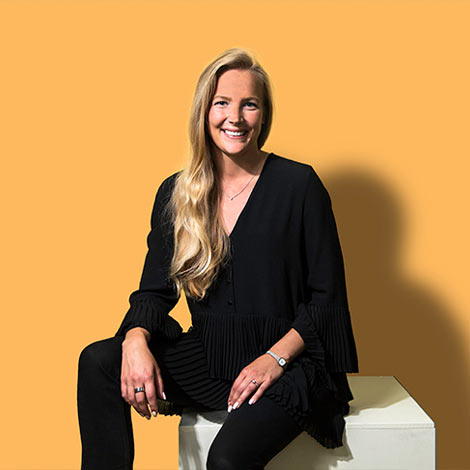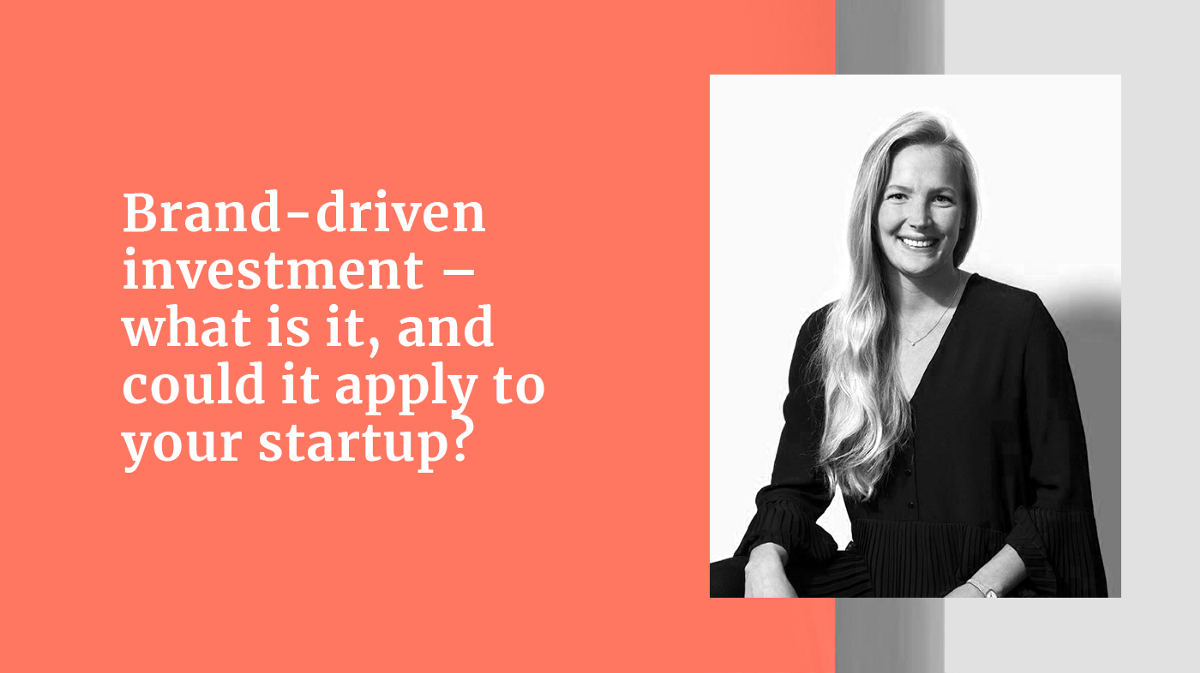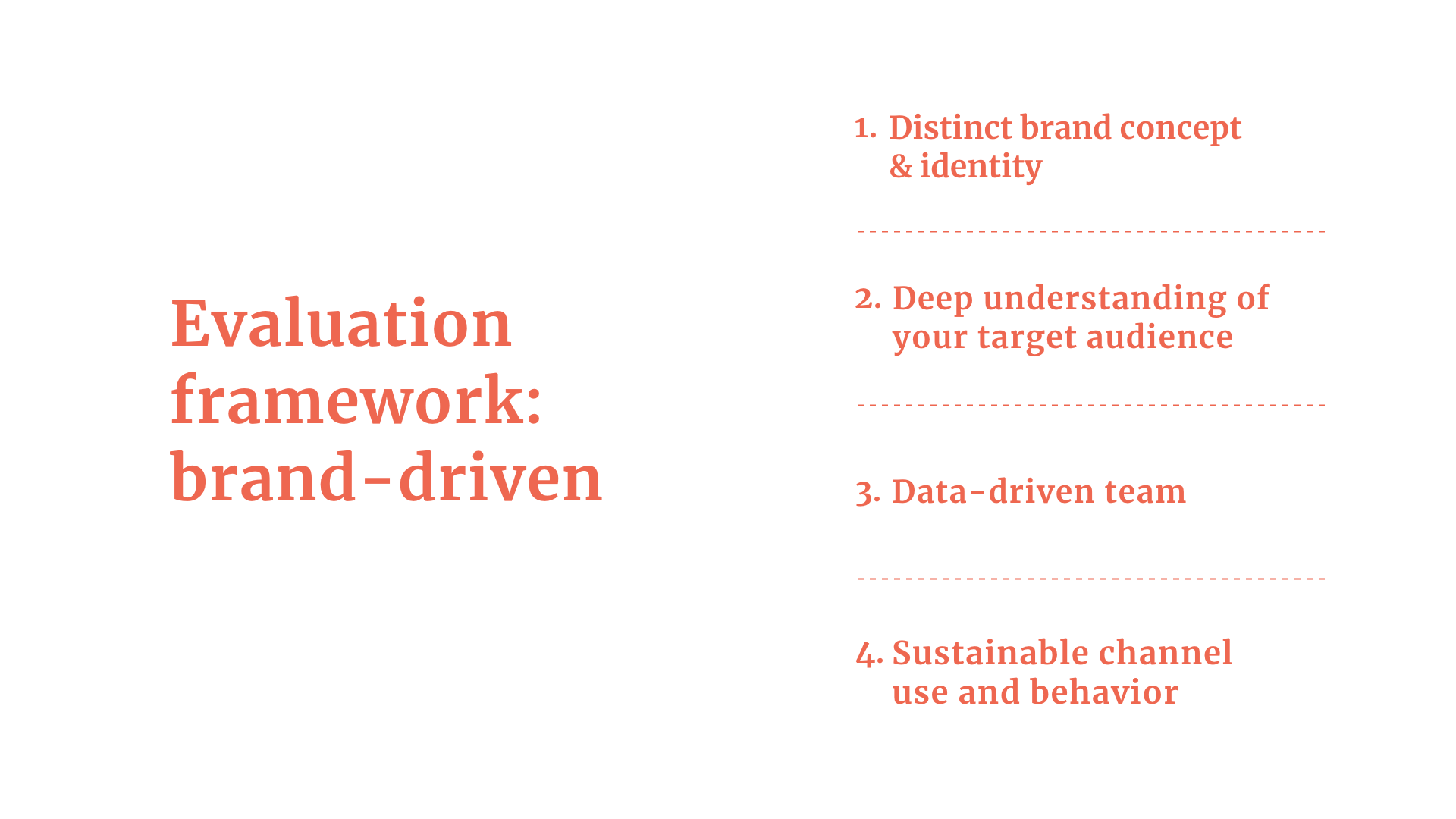Maria 01, Building 5, entrance B
Lapinlahdenkatu 16, 00180 Helsinki
Making history? lets@maki.vc
Press inquiries: press@maki.vc
Blog | Sep 4, 2020
 WRITTEN BY Pauliina Martikainen
WRITTEN BY Pauliina Martikainen

When introducing Maki.vc, I always start by saying that we partner with deep tech and brand-driven companies obsessed with challenging category norms. While deep tech is rather intuitive, we find ourselves explaining the concept of a brand-driven company on a weekly basis. Does it mean you look for established brands? Can early-stage companies even be brand-driven? If you’re a founder about to ask us the same question, this one is a must-read for you.
We firmly believe that founding teams with either deep tech or brand-drivenness in their core are effectively future-proofing themselves for the rapidly changing times, regardless of their industry or business model.
It’s easier to understand how deep tech companies are built to be future-proof. These companies are based on fundamental and defensible scientific advances or engineering innovation and have evident potential to catalyze long-term change in their industry.
The connection between brand-drivenness and future-proofing may be less apparent. While ideally even the deepest tech companies can be fostered into uniquely positioned brands, we are also eager to partner with companies whose primary competitive advantage is their team’s understanding of how their product speaks to key human motivations. These companies have the potential to become category-defining, defensible — and yes, future-proof — thanks to the strength of their brand core and their flexible ability to apply it rigorously across all touchpoints to remain relevant over time.

As I imagine most founders must now be nodding impatiently, I want to take you a step further down the road and introduce our evaluation framework for investing in brands. Our thinking centers around four pillars.

Many of these things are qualitative and do not fit neatly into a VC’s standard excel sheets. That’s why we want to spend a good amount of time getting to know the founders we meet, digging a little bit deeper to get the broadest possible understanding of what branding means for the company in question. This is what we look for:
A clear brand concept means that your brand has both character and essence — you know why your brand needs to exist and can communicate its necessity to others.
A clear brand concept is the prerequisite for a distinctive and compelling brand identity (including creative assets like colors, typography, logo, tonality etc.) and being able to communicate a solid brand promise to your target market. Over time, brands must evolve in sync with societal trends. A strong brand concept helps companies achieve this while keeping their core intact.
At minimum, we expect: to see that you understand that a brand doesn’t equal your logo, a marketing intern can’t lead brand development, and that a distinct brand concept is the basis for building a strong brand identity. And that having a great product doesn’t yet equal having a great brand.
Wow us: by displaying the concrete steps you’ve taken to showcase your understanding of the importance of branding. Your founding team or recruiting roadmap includes a person who takes ownership of the brand and marketing, and you have adequate resources for developing your brand. Maybe you’ve already identified what makes your brand concept distinct — and can demonstrate that to us, as well.
The founding team needs to be very specific about who they are building their product for, as products rarely speak for themselves. Too often founders deprioritize working on their value proposition — and consequently, their brand — until far too late in their journey. This leads to companies pushing their products to the market without understanding where they sit, who they’re running up against, who should they target, and why customers should choose their product over other options. Don’t focus on pure functionality. Do overthink your audience.
At minimum, we expect: to see a clear and unique value proposition. Ideally, your team will have defined a concise, inspiring, and realistic summary of who is the ideal customer, what are the struggles and needs of that audience, and what value this exact brand delivers to them.
Wow us: with your ability to look beyond convention, showcase thought-through empathy in your branding efforts, and demonstrate your ability and willingness to relate to your audience’s needs like they are your own. We love to hear about your first users who can’t stop telling about your product for their peers.
During the investment process, we want to evaluate the dedication and depth of the thought process given to brand thinking amongst the company founders. We’re especially keen to see the team’s strategy for owning the customer relationship and their capability to derive meaningful data from these interactions. Building strong customer insight muscles helps your team adapt quickly to unforeseen market changes and defend your company against industry incumbents.
At minimum, we expect: your agreement on the fact that brand work is never finished. Hiring an external agency to think through your brand assets is not enough — your core team should be doing the hard thinking at this stage. We also expect you to be able to discuss the key customer metrics you want to keep a close eye on going forward — even better if you’ve collected customer insights by forming and validating them directly with your customers.
Wow us: with a measurable marketing strategy and plan that 1) continuously tests your hypotheses 2) enhances your understanding of the needs of your customers 3) aligns with your sales funnel. Sustainable dog food company Alvar Pet exemplifies why product development should be supported by customer data, regardless of who you’re looking to serve. Their newest recipe was tailored to big breed dogs — ie. customers that they identified as having the biggest environmental impact but that were, in light of data, most likely to drop out. Oh and, we also appreciate a marketing dashboard that makes our legs weak — Happeo’s CMO Lidia shares a pretty great example here.
We look for founders with a clear understanding of how to serve the target audience sustainably across the entire customer journey — from marketing to distribution to customer service, and so on. Especially when it comes to customer acquisition, founders — often pushed by investors — tend to focus on short-termism and setting up their business in a fundamentally unsustainable way.
For example, it’s becoming increasingly more challenging to plug into Facebook and Instagram for organic growth. As a result, many brands turn to paid marketing. However, this only works if the brand story genuinely does. While performance marketing may help spread the word, a weak story will eventually kill the message. Don’t shoot the messenger, but make your story work for whoever, whenever and wherever.
At minimum, we expect: an ability to tell a compelling story and showcase ideas beyond performance marketing — we know that your brand doesn’t grow exponentially with ad spend.
Wow us: with a broad and creative approach that covers all necessary bases and channels — or sound, water-proof reasoning for why you should focus on one primary channel in the beginning. Perhaps you’ve already mapped the ideal customer journey? If you’ve thought about a roadmap of product features, referral programs, possible use of influencers, content / SEO strategy or customer relationship management beyond first sales, you’re on the right path.
Rome wasn’t built in a day. Neither were Spotify, Nike, or Oatly (and as we’ve seen in the last days, never take your good brand reputation as granted). Thus, we don’t expect early-stage startups to have it all figured out just yet. Ultimately, we’re looking for founders that recognize the value of a strong brand in future-proofing their company and have taken some of the first steps to prove this.
Think you already have what it takes? pauliina@maki.vc